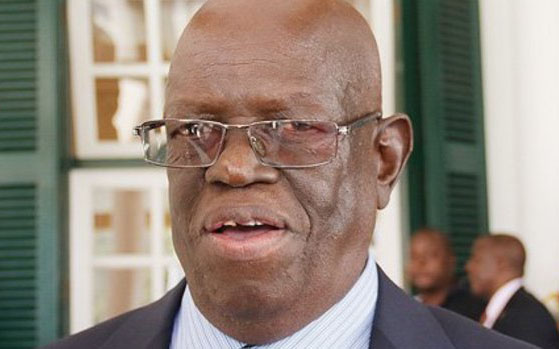$2m ZACC allowances case hits brickwall

 Fidelis Munyoro Chief Court Reporter
Fidelis Munyoro Chief Court Reporter
Seventeen Zimbabwe Anti-Corruption Commission (zacc) employees suffered a huge setback after an arbitrator refused to endorse a combined $2 million claim for anti-corruption and cellphone allowances.
The 17 had sought the arbitrator’s assistance in quantifying the claims on benefits they were not receiving. But an independent arbitrator, Mr M.C Kare, declined to confirm various claims in excess of the $2 million quantified by the 17 due to non-availability of written contract of employment.
He ruled that the quantification of claimed benefits should be based on what the individual employee was entitled to in accordance with the contract of employment and not on information obtained from elsewhere.
“Having carefully considered both oral and written evidence from the parties and taking heed of the Labour Court’s judgment on this matter, I hereby decline to endorse or confirm claims, quantified by applicants,” said Mr Kare.
“The non-availability of a contract of employment in quantifying applicants’ claims, in my view, renders a serious setback in the sense that the correct source of the benefit being claimed and the specific amount being claimed per month or week is not readily available.”
Mr Kare found that proceeding with quantification in the absence of the employment contract, as stated in the court’s judgment, would be synonymous to “forcing oneself into a house without using the proper keys”.
The arbitrator urged the two parties to negotiate the amount of benefits being claimed in good faith. The ruling followed an arbitral award in January 2013 by another arbitrator, Mr Rogers Matsikidze, ordering the anti-graft commission to pay the 17 their contractual benefits.
Zacc appealed against the award, which was amended in a judgment delivered by the Labour Court in 2015. In that judgment, the Labour Court amended the award to include all contractual benefits on the payslips and compelled zacc to pay the workers their benefits.
According to the judgment, the benefits would be paid from the dates they were awarded in terms of the contracts of employment. The period of the claims stretched from February 2009 to February 2017.
Zacc agreed to the Labour Court’s judgment and the 17 expected payment of the allowances, but the commission did not comply with the order.
This necessitated the application for quantification of the workers’ claims before an independent arbitrator. The employees, who were being represented by Mr Samuel Banda of J. Mambara and Partners, argued that the benefits they claimed were justifiable and correct because there was an existent contract with the employer.
Mr Banda argued that his clients used information contained in the internal audit report of October 2013 to work out their claims.
Zacc disputed the figures. Mr Banda further argued that although the commission failed to give them written contracts of employment, they legally remained employees of zacc by virtue of Section 12(1) of the Labour Act.
The issue of non-availability of a contract of employment, argued Mr Banda, could not disqualify them from getting their benefits. Zacc lawyer Mr Itayi Ndudzo of Mutamangira and Associates hinged his argument on the Labour Court judgment, which alluded to employment contracts.
He said the employees could only seek the quantification of their claims basing computation exclusively on contracts of employment that specified the benefits they claimed.
Mr Ndudzo said in the absence of the basic elements, it would be futile to quantify employees’ claims. He said each employee was strictly required to produce a contract of employment and to show the amount of the benefits entitled to them.
This was to assist in the quantification process.









Comments